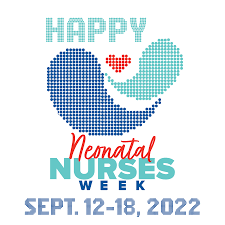Neonatal Nurses Week kicks off this year on September 12 and will bring a week to spread awareness of neonatal nursing as a career and to call attention to the work these nurses do with the tiniest infants.
Sponsored by the National Association of Neonatal Nurses, this observation week shines a spotlight on nurses who work with pre-term and full-term infants who are facing various health challenges from low birth weight to genetically based health issues. According to NANN, nurses generally work with these infants until they are discharged from the hospital after birth, but that can span a months-long period of treatment. Some nurses in this area do continue to see patients until they reach toddlerhood.
Thanks to all the advances in neonatal care and treatment, babies born with problems such as low birth weight face much-improved survival rates than babies born even 15 years ago. And advances in neonatal intensive care units have seen great progress. Research in the Journal of Pediatrics and Neonatal Care shows how many different factors in the care setting can influence the health outcomes of infants. As nurses build awareness of everything from the importance of hand washing to the negative impacts of light and noise in the care environment, overall outcomes continue to get better.
Neonatal nurses are particularly attuned to their tiny patients and they have especially keen observation skills. Neonatal nurses continually monitor the infants’ vital signs, but they also use their own five senses to watch the infants for any changes in behavior or appearance for signs of pain or infection. With such tiny patients, every nursing process takes a more targeted approach including tasks such as central line or breathing and respiratory care so neonatal nurses develop specialized skills.
Working with families is significant part of the neonatal nurse’s day. Helping parent-baby bonds develop as is possible with infants who may be very ill requires careful approaches and often nothing the new parents have ever experienced. Neonatal nurses can help share their own observations for what works to help both parents and babies develop attachments in this critical time. They are also there to help support parents if they can feed babies on their own or even develop special feeding times if additional feeding support is being used.
Nurses in this specialty are devoted to their patients and advocate for them as they are unable to advocate for themselves. Neonatal nurses have sharp critical thinking skills that are necessary when conditions change or the infant is showing signs of distress. They should continue to develop their skills and deepen their knowledge and can do that through achieving certification with programs including the American Association of Critical Care Nurses CCRN-Neonatal program.
Nurses with a passion for dedicated nursing and for some of the most vulnerable patients will find neonatal nursing a meaningful career with opportunity for continual learning.
- Honoring Radiology Nurses Day on April 12 - April 12, 2024
- Travel Offers New Career Possibilities - April 8, 2024
- March 30 Is World Bipolar Day - March 29, 2024



